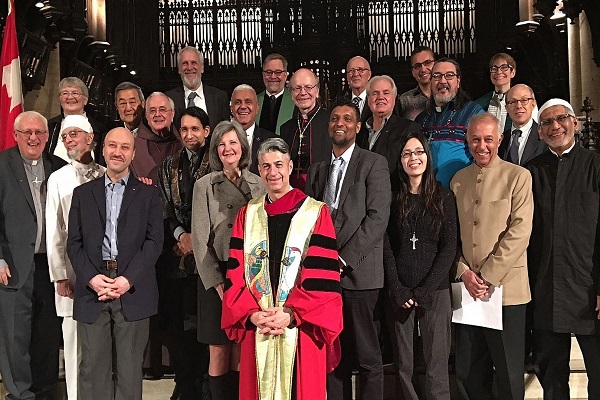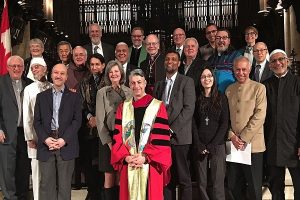
The Anchor of Faith
- By Sam Field --
- 20 Feb 2021 --

for Healing and Peace.
One would never wish confusion on one’s own society or friends, but according to some supposed experts we all live today in an “age of confusion,” an age of uncertainty and bewilderment.
Terrorism erupts during a sporting event or church service, the economy crashes because of bad housing loans, thousands die of opioid overdoses, addicts become slaves of chemistry and sink to crime, homelessness and apathy. And a virus erupts to bring the world to a halt
Erratic political, social and personal environments are exaggerated and trumpeted by traditional media eager to avoid economic oblivion, while ascendant social media spreads gossip, rumor and conspiracy.
People at their best express kindness, hope, love and are capable of great acts of heroism. At their worst, well, we’ve all seen examples of that. Individuals have ideas which vary depending on where and how extensively they were educated. There are things they value and things they throw away, attachments they welcome and those they resist. But among the thousands of individual choices, likes dislikes, certainties and uncertainties some have religious beliefs, and it is those beliefs which reach to the bottom of a turbulent sea of contrary forces, and provide an anchor, a stability that holds steady against the pressures of immorality, easy gain and going with the flow of others who are adrift and ungrounded.
“If it feels good do it,” might be the anthem of the drug user, morbidly obese gastronomes, promiscuous hedonists, and creative people who – fearing a lost edge – die of drug overdoses. There’s the “feeling good” of the body – tastes, sensations and sensory pleasures from a hot fudge sunday to a lover’s touch. And there’s the “feel good” of a job well done, of helping someone, the pleasurable illumination of learning something new, of creating something worthwhile.
Perhaps some might think it ironic that the “real” things of life – the houses, automobiles, credit cards, people and places – become such a jumble of confusion while the ethereal belief in an unseen God remains untouched, inviolate, eternal. But it is the belief in a higher purpose, a more exalted plane of existence that puts life and its troubles into perspective.
“God is not the author of confusion, but of peace,” as it says in First Corinthians. Judaism, Islam, Hinduism and other faiths also hold peace as central to man’s transformation and enlightenment, even as followers fall short of those ideals.
In a whirlwind of confusion, one needs an anchor, a stability of certainty from which to observe and make sense of the maelstrom. For believers, that anchor is faith. Faith is not an opiate to dull the pains of life, but a star, a mountain peak toward which one may align their lives, a direction, a destination and a reminder of who we are and of what we are capable.


















